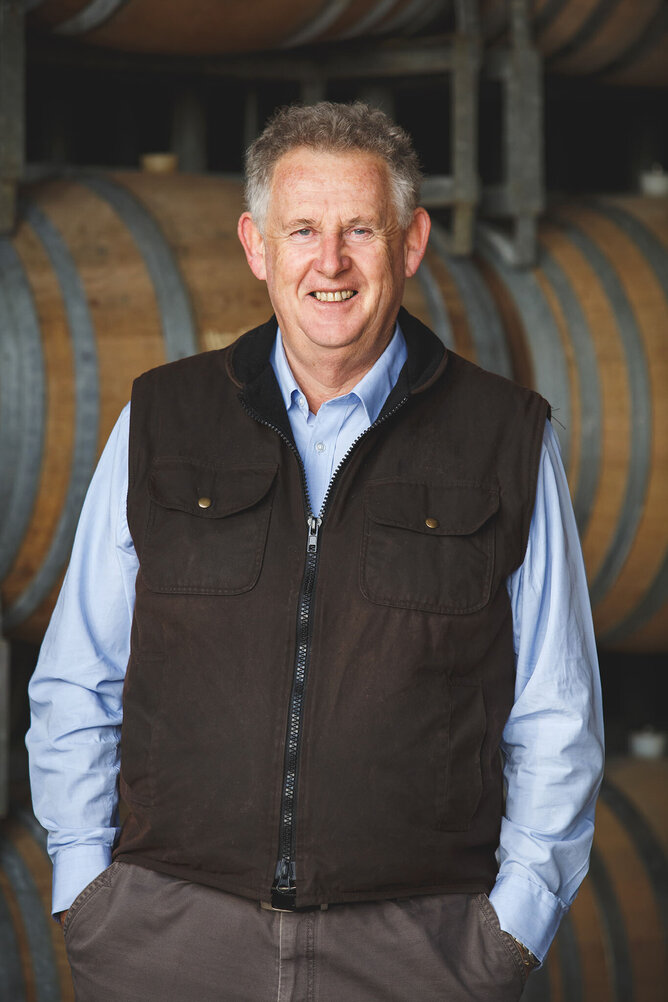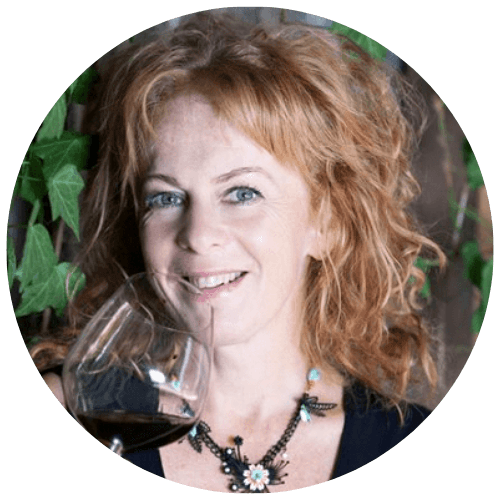Creativity, freedom and lack of funds in scientific research all led Dr John Forrest down the winemaking path in 1988 when he founded Forrest Estate Wines with his wife, Brigid. Today, their winery is one of Marlborough's oldest wineries and one of the region's most dedicated to diversity. Albarino arrived in New Zealand because of their daughter, Beth, now a winemaker who fell for the charms of this north Spanish white grape when living there and arrived back in New Zealand with an infectious passion for this grape, which is now going from one strength to the next throughout New Zealand, including at Forrest Estate in Marlborough; a winery long known for its diversity.
John Forrest was an early adopter of and driver behind screwcaps, lower alcohol wines and diversity, which is why Chenin Blanc, Petit Manseng and Riesling all have a place in his heart and in his vineyards.
He was drawn to wine after an unsatisfying career in molecular neurobiology research science in Palmerston North. "The funding for science in New Zealand was non existent and the Government did not see the benefits of scientific research in this country, which was enormously frustrating after working in well paid scientific research jobs in Australia and the United States. "I enjoyed the work but I don't miss the under funded structure and bureaucracy. It was too hard."
By contrast, he loves the creativity of wine and the freedom of running his own business.
When he and Brigid began Forrest Estate in 1988, they were about the seventh or eighth winery in Marlborough, which he describes as "an exciting time in a naieve sort of way".
"The best thing has been and is the reliable quality of grapes in Marlborough and New Zealand. Grapes that make exciting, mouth filling, vivacious wines. It's been bloody consistent. It's been the key to our success as a winery and as a region for other wineries. We are able to deliver incredibly consistent quality wines every year. The style may vary but the quality is there."
The most challenging thing has been banks and lending institutions.
"We have had no help from banks. In every case it's down to ineptitude and unhelpful bureacracy. We have never missed a day's repayment in 35 years and the attitude we receive is awful. I have a mantra that I remind myself of - 'the banks are not your friend'. New Zealand has an incredibly inhibitory environment for entrepreneurs. It is stressful to deal with when running a company in this country."
On a positive note, Forrest has made an indelible mark on the quality of Marlborough and New Zealand's wines, not least for his pioneering role alongside other movers and shakers in the early days of the screwcap movement.
This is Dr John Forrest's story.
This interview is based on Proust questionnaire which originated in 1886 - read more here
What do you consider your greatest achievement?
Collectively, having three well adjusted, high achieving and happy children in the modern world has been a huge achievement. The balance of the dedication to that success is more my wife than I. On a professional level, screwcaps are a close second but the innovation and development of good low alcohol wine and where we are going with that now is, for me, something that also ticks all the boxes - my science background, entrepreneurial nature and it stretches my creative brain.
Do you have a most treasured wine?
Riesling from my Brancott Valley 14 year old Riesling vines. It makes my favourite wine. It was originally a single vineyard wine and then morphed into a component of the John Forrest Collection.
When and where are you at your happiest?
I'm pretty happy right now. It's a sunny day and I'm pruning two year old grapevines. A lot of people drive by and look incredulous, asking why this older guy is doing the pruning. The reason is that every good cut that I make sets these vines up for the next 50 years. If you stuff it up in year two, they are compromised for the rest of their lives.
Pruning carries the bonus of disconnecting you from other human beings and from your phone.
What do you most dislike in wine?
The restrictive and snobbish attitude that has persisted but is thankfully going. I think wine should be celebrated and enjoyed, not viewed with a snobbish attitude.
What is your greatest fear?
Global warming. In the 35 or so years of vintages I've worked, everything has moved forward 10 days. That's a huge and rapid change. I fear that global warming is going to change our advantages in viticulture and winemaking in New Zealand.
What's your biggest indulgence?
Oysters with fresh white bread on a nice evening on my deck in Waikawa with my wife. The best oysters are Bluff of course and they coat your tongue so if you have a high acid wine like Marlborough Riesling or Chardonnay then it dissolves the omega and adds richness to the whole experience...
What is your greatest regret?
About 15 years ago, I ummed and ahhed about buying another 50 hectares of premium land in Marlborough and well, you do the sums now about what that's worth and that's an enormous regret.
What talent would you most like to have?
To be able to play my banjo.
What do you regard as the lowest depth of misery?
Not to have good friends and family. Not to have wine each evening comes second.
What do you most value in your friends?
The ability to have good conversation and agree to disagree. Too many people can't agree to disagree. I love debating politics and even if we have diametrically opposed opinions, I like having the discussion and being able to agree that we don't have to see things the same way.
What is your favourite meal?
Fresh seafood from the Marlborough Sounds with tempura batter. It's melt in the mouth juicy. We have a tradition that I've taken over from my nearly 90 year old uncle where I am the cook for the Forrest family until the Forrest family are so full, they can't eat any more.
If you were to die and come back as a person or thing what would it be?
I wouldn't mind coming back as our dog, 14 year old Frankie; a border collie. She's had a good life on a vineyard. She's here now running around. I couldn't think of a better life.




